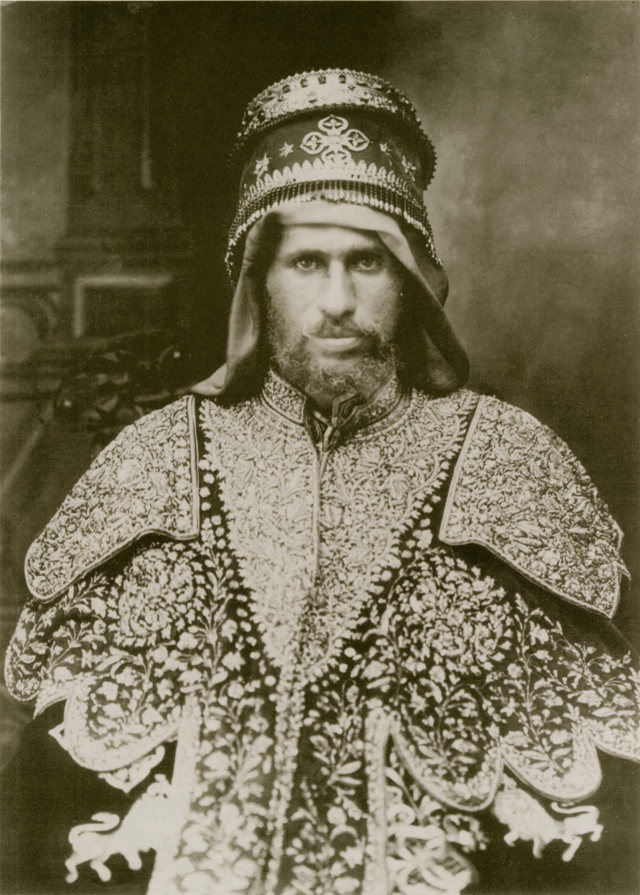Negus
Royal title of Ethiopia and Eritrea, equivalent to "king" From Wikipedia, the free encyclopedia
Negus[a] is the word for "king" in the Ethiopian Semitic languages and a title[2] which was usually bestowed upon a regional ruler by the Negusa Nagast, or "king of kings,"[3] in pre-1974 Ethiopia.

History
Negus is a noun derived from the Ge'ez Semitic root ngś, meaning "to reign". The title Negus literally translated to Basileus (Greek: βασιλεύς) in Ancient Greek, which was seen many times on Aksumite currency. The title has subsequently been used to translate the word "king" or "emperor" in Biblical and other literature. In more recent times, it was used as an honorific title bestowed on governors of the most important provinces (kingdoms): Gojjam, Begemder, Wello, Tigray and the seaward kingdom, (where the variation Bahri Negasi (Sea King), was the title of the ruler of present-day central Eritrea). The military title "Meridazmatch" was initially used by the rulers of Shewa until the reign of Sahle Selassie, when he and his successors adopted the royal title as well.[4][5]
Etymology
Sometime during the development of the Ethio-Semitic language family "m-l-k," the original triconsonantal root for king, was elevated to the generic word for "god" in the form of the broken plural "ʾämlak/ʔamlāk." During this time period the semitic term for a ruler or lord, n-g-s, began to mean "king." In an ancient Aramaic inscription mentioning the god ʿAṯtar his name is followed by the title 𐡍𐡂𐡔 (ngš), corresponding to Ancient North Arabian 𐪌𐪔𐪆 (ngś), meaning "the ruler."[6]
See also
Footnotes
References
Wikiwand - on
Seamless Wikipedia browsing. On steroids.
